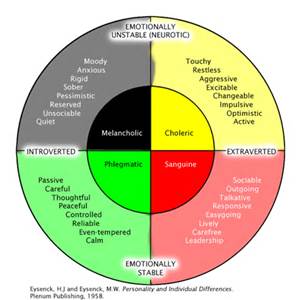“When All My Ducks Are in a Row” The Melancholy
Organized, methodical, and strictly by the book. The Melancholy doesn’t do anything by chance and rarely on a whim! They are strategic planners with a great attention to detail. If they are going to embark upon anything from where to eat dinner to making a career change, a certain degree of research, thought, and deliberation will have to take place. Unlike the Sanguine who will jump at the first job offer or new car they see on the lot, the Melancholy will weigh all the pros and cons. They will talk themselves in and out of a decision a dozen times claiming that it “just doesn’t feel right.” Because they are the most sensitive and feeling of all the temperaments, they often base their thought processes on emotion. When a Melancholy’s perceptions are flawed by feelings, it’s sometimes difficult to convince them that certain adjustments and changes to be made are in their best interest. Because of their high intellect, a Melancholy will only trust the opinions and advice of those they feel possess …









